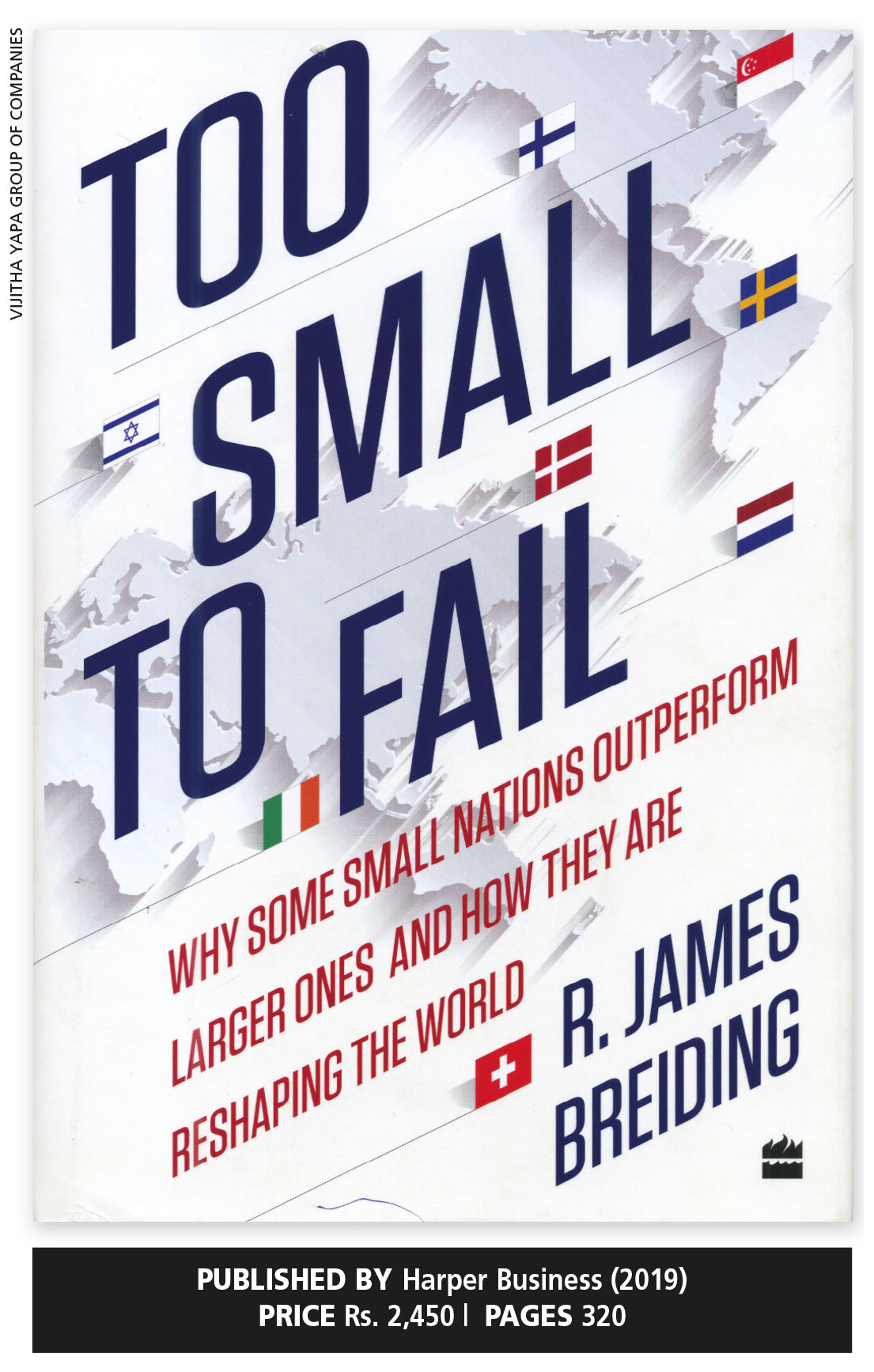BOOKRACK
This book’s title is intriguing – especially given the controversy surrounding the denial of visas by the US Department of State
to the Commander of the Sri Lanka Army Lieutenant General Shavendra Silva and his family.
Though no one has explained why the Army Commander was planning to visit the US, he was among those who were responsible for giving leadership to defeat the LTTE in 2009.
The subtitle ‘Why some small nations outperform larger ones’ may provide a clue.
No country has been able to wipe out terrorism the way Sri Lanka did; and the US, which has so many troops in several countries engaged in battles against terrorist groups, has cause to worry when others achieve success where it has failed.
Ambassador-at-large Tommy Koh at the Ministry of Foreign Affairs in Singapore opines that the details in this book reveal that some of the richest countries in the world are small nations with not so large economies. Some of the 20 successful trading entities are also small countries and they’re the least corrupt.
He emphasises that these nations have the best education systems and rank high when assessed for their ease of doing business. And he notes that the size of a country is only one factor influencing its success or failure, adding that what matters are the policies it pursues and values it upholds.
Genevan philosopher Jean-Jacques Rousseau, who was one of the most influential thinkers in Europe’s Age of Enlightenment, observed that leaders who are overly preoccupied don’t see anything but themselves. Talent is buried, virtue unknown and vice goes unpunished among a multitude of men who don’t know one another.
Author Dr. James Breiding points out that much of the current debate on global economic performance focusses not on success but failure and shows that small countries now make up 11 of the top 15 advanced economies in terms of per capita income. He observes that in smaller states, teachers enjoy public respect and good incomes.
Breiding adds: “Children grow up embracing meritocracy and egalitarianism, not privilege and elitism.”
And he notes that small countries draw strength from their historical status as underdogs who were bullied by larger neighbours. This observation has a bearing on what we say about our glorious past, the wrongs committed by imperialists, a majority behaving like minorities do and viewing neighbouring India with mistrust.
While larger nations view competition with a ‘winner takes all’ mindset, successful smaller nations value mutual respect and collaboration. They believe in reciprocity of trade since it enables both sides to benefit from the transactions.
Denmark is one of the most heavily taxed nations in the world but the Danes believe that taxes are a necessary investment for a better society. However, there is an outcry about taxes in Sri Lanka, which is a nation that’s heavily in debt. Ad hoc tax cuts were announced recently without a concerted effort being made to consider the future and with hardly any benefit to consumers on whose behalf these steps were taken.
The author notes that Singapore, Sweden, Switzerland and Israel have considerably more billionaires per capita than the US, UK, China or India. Adaptability has been the key to the rise of smaller nations whose successes have no place in the metrics of the World Economic Forum (WEF), World Bank or IMF.
Niche products can also play a key part in an economy.
Breiding points out that Givaudan and Firmenich of Switzerland control a major portion of the flavours and fragrances found in food items, and even laundry detergents and shampoos. Many companies like these file five times the number of patents per employee at 25 percent of the average cost.
In The Three Princes of Serendip, a trio from the eponymous country were sent by their father to search for the potion that would drive away the sea monsters threatening their island home. On their journey, the princes were pleasantly rewarded for their actions in unexpected ways, which led to the coining of the word ‘serendipity.’
There’s another important reason for the success achieved by smaller nations. For instance, subordinates in the Israeli military are encouraged to challenge and contradict their superiors even to the point of insubordination – as long as it results in better understanding and improvement.
This is a fascinating book to read, digest and understand how to stay ahead in a competitive world. Perhaps our leaders could take a few leaves out of this book, which is packed with ideas, and help take Sri Lanka up to a higher orbit – and even join the small nations’ club of enterprise and innovation.





